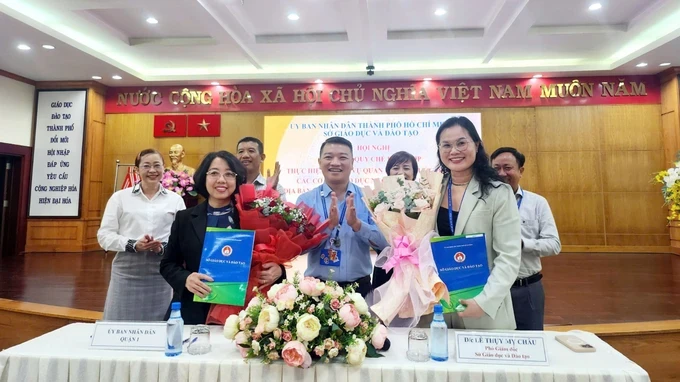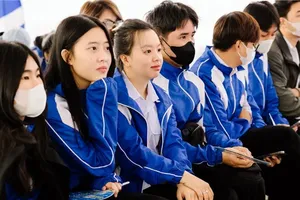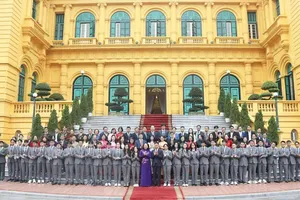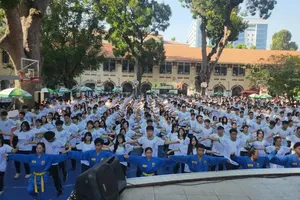
Head Ta Thi Minh Thu of the Division of Non-Public Education Management under the HCMC Department of Education and Training informed that the department has already signed five cooperation agreements with various agencies, including the municipal Department of Labor, Invalids and Social Affairs, the Department of Planning and Investment, the Tax Department, the Social Insurance Department, and the Public Security Department, to collaborate on the management of non-public educational institutions.
The HCMC Department of Education and Training continues to establish collaborative protocols with the People's Committees of Thu Duc City and 21 districts, with the paramount objectives of enhancing state management efficacy, establishing clear legal foundations for consistent inter-agency cooperation and information exchange, mitigating administrative redundancies in inspection and supervision, facilitating timely and appropriate personnel allocation, and augmenting communication efforts to shape public discourse.
This strategic approach aims to disseminate positive narratives while combating misinformation, particularly within digital spaces.
As one of the localities participating in the signing ceremony, Vice Chairwoman Mai Thi Hong Hoa of the District 1 People's Committee noted that the non-public education system is increasingly affirming its vital role in expanding training scale and providing more learning opportunities for city dwellers, especially in central districts with high educational demand, meeting the diverse learning needs of students and parents.
However, alongside these positive contributions, the privately-owned educational system still faces numerous limitations, such as inconsistent training quality among institutions; failure to comply with regulations on land use, fire safety; and frequent changes of operating locations, legal entities, and staff.
This strong collaboration between the municipal Education and Training Department and all localities in the city is the key to improving management over these non-public educational institutions.
Deputy Director Le Thuy My Chau of the Educational and Training Department characterized the collaborative protocol as a significant milestone in local educational management, simultaneously elevating administrative accountability and cultivating a conducive environment for non-public educational institutions' developmental route.
Particularly, the five key tasks outlined in the cooperative agreement include
- monitoring, inspecting, and evaluating the quality of training;
- ensuring that institutions comply with legal regulations and protect learners' rights;
- supporting the development of teaching staff;
- improving facilities and teaching equipment;
- coordinating to address emerging issues during the management process, ensuring consistency in state management.
























